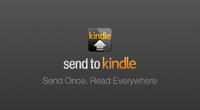
Authors who elect to self-publish through Kindle Direct Publishing or Nook Press often have trouble deciding how much their e-book should cost. Major publishers have dramatically increased the prices in the last calendar year from $9.99 to $14.99. If you are going to be submitting your book to sell online, how much should it cost?
One of the biggest advantages that self-published authors have is being able to determine their own price. Major publishers on the other hand dictate the price, and the original author doesn’t have any control.
Amazon offered some pricing advice to authors, when they were battling Hachette over a contract dispute. The Amazon Books Team posted on the Kindle Forum “For every copy an e-book would sell at $14.99, it would sell 1.74 copies if priced at $9.99. So, for example, if customers would buy 100,000 copies of a particular e-book at $14.99, then customers would buy 174,000 copies of that same e-book at $9.99. Total revenue at $14.99 would be $1,499,000. Total revenue at $9.99 is $1,738,000.”
Meanwhile, Mark Coker the CEO of Smashwords knows a thing or two about self-publishing. He wrote in a blog post a few years ago “we found $2.99 books, on average, netted the authors more earnings (profit per unit, multiplied by units sold) than books priced at $6.99 and above. When we look at the $2.99 price point compared to $9.99, $2.99 earns the author slightly more, yet gains the author about four times as many readers. $2.99 e-books earned the authors six times as many readers than books priced over $10.”
Mark went on to mention “If an author can earn the same or greater income selling lower cost books, yet reach significantly more readers, then, drum roll please, it means the authors who are selling higher priced books through traditional publishers are at an extreme disadvantage to indie authors in terms of long term platform building. The lower-priced books are building author brand faster. Never mind that an indie author earns more per $2.99 unit sold ($1.80-$2.10) than a traditionally published author earns at $9.99 ($1.25-$1.75).”
So, we have some very compelling data from the big companies that are involved in self-publishing, in one way or another, but what are authors saying about e-book pricing?
Patrick E. McLean, author of How to Succeed in Evil, wrote that increasing the price of his book increased his even more modest income. That said, his sales were tiny and the original price was just shy of free. So low, in fact, that readers might have seen it as indicating low quality. He said “All we can know it what happened with that one book for that one period. So here’s what happened when I raised the price of How to Succeed in Evil from $0.99 to $2.99—Sales went up. I was averaging about nine copies a day. Now I’m up to 17. It’s crazy to think that an increase in price causes and increase in sales. I think if I had left the price at 99 cents I would now also be at 14 e-books a day. I don’t think price matters that much.”
Author Russell Blake, said that shifting his prices didn’t really move sales very much, but he didn’t substantiate it with any specifics. John Keliher, a writer of books about math, said he saw a signficant uptick in his admittedly modest overall sales by lowering prices, enough that he made an extra $100 per month with lower prices. He wrote, “At $5.00 I sell about 50 e-books a month, but at $2.99 I sell about 120 e-books a month. Consequently, my profit is greater when I price my e-books at $2.99.”
In the end, major publishers are screwing readers over high e-book pricing and the ball is in the indie authors court to be able to demonstrate that they can prove to the big trade houses that they know more about effective e-book pricing than they do.
Michael Kozlowski is the editor-in-chief at Good e-Reader and has written about audiobooks and e-readers for the past fifteen years. Newspapers and websites such as the CBC, CNET, Engadget, Huffington Post and the New York Times have picked up his articles. He Lives in Vancouver, British Columbia, Canada.
